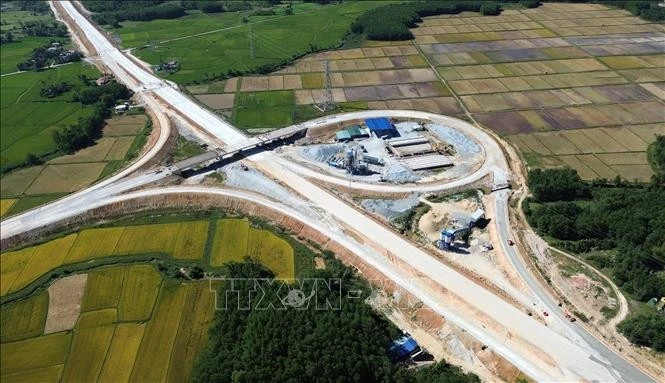Practical benefits of digitizing civil status data
Digitizing civil status data helps to store and preserve information easily, while minimizing the risks of physical damage such as fire, mold or loss of documents. Compared to traditional management methods, digitization significantly saves storage space, costs and human resources, especially in the context of the annual increase in the volume of civil status records.
In addition, the digital data system also allows managers to look up and process information quickly and accurately. Instead of having to manually search through thousands of documents, now with just a few operations on the computer, the necessary information can be retrieved immediately. This not only reduces the pressure on civil status officers but also shortens the time to handle administrative procedures for people.

For citizens, digitizing civil status data brings great convenience. Instead of having to go directly to administrative agencies to carry out procedures such as birth, marriage or death registration, people can easily access information and carry out procedures online remotely. This not only saves time and travel costs but also increases transparency in the process of handling administrative procedures.
More than 65 million civil status records have been digitized.
Digitizing civil status data is a complex process, including collecting, classifying, capturing and creating data from paper civil status books to update the Civil Status Registration and Management Information System. This is an important step in building a national electronic civil status database (CSDL), ensuring consistency and efficiency in information management.
Currently, more than 65 million civil status records have been digitized, marking an important milestone in the process of modernizing the administrative management system. Digitized data is connected and synchronized in two directions with the national population database. This process not only helps to compare, review and update information but also ensures accuracy and consistency between systems.
When the national electronic civil status database is completed and operated uniformly, civil status registration and management agencies can easily look up and exploit information from the system. This helps reduce the workload for civil status officials, while improving the efficiency of administrative procedures. With this system, procedures such as birth, marriage or death registration can not only be carried out quickly but can also be done online, creating maximum convenience for people.
Synchronization and integration: Key factors in digitalization
One of the highlights of civil status data digitization is the ability to synchronize and integrate information between database systems. Civil status data after digitization will be shared and updated with the national population database, ensuring that information is always accurate and up-to-date. This connection not only supports management but also creates conditions for state agencies to exploit information effectively, serving the goals of management and socio-economic development.
In addition, integrating electronic civil status data with other digital platforms such as electronic identification and authentication systems, social insurance systems or online public services also opens up many new opportunities. People can use a single account to access and perform many different services, from civil status registration, making citizen identification cards to looking up social insurance information and personal assets.
Despite many positive results, the process of digitizing civil status data still faces many challenges. One of the major problems is the huge amount of data that needs to be digitized, requiring strong investment in technology, human resources and funding. In addition, ensuring the accuracy and security of digitized data is also an important requirement, especially when civil status information is related to the rights and legal obligations of the people.
To overcome these challenges, close coordination between government agencies, from central to local levels, is needed in deploying and operating the system. In addition, it is necessary to invest in advanced technologies such as artificial intelligence (AI) and machine learning to automate digital processes, while enhancing training and capacity building for civil status officials.
Digitizing civil status data is not only a strategic step in the journey of national digital transformation but also brings practical benefits to both people and state management agencies. This is an important foundation for building e-Government, improving the efficiency of administrative management and improving the quality of public services. With continuous investment and efforts, digitizing civil status data promises to continue to bring many benefits, contributing to promoting the country's sustainable development in the digital age./.
Source: https://mic.gov.vn/so-hoa-du-lieu-ho-tich-tien-ich-cho-nguoi-dan-197241231104251034.htm



![[Photo] Looking back at the impressive moments of the Vietnamese rescue team in Myanmar](https://vstatic.vietnam.vn/vietnam/resource/IMAGE/2025/4/11/5623ca902a934e19b604c718265249d0)

![[Photo] "Beauties" participate in the parade rehearsal at Bien Hoa airport](https://vstatic.vietnam.vn/vietnam/resource/IMAGE/2025/4/11/155502af3384431e918de0e2e585d13a)


























![[Photo] Summary of parade practice in preparation for the April 30th celebration](https://vstatic.vietnam.vn/vietnam/resource/IMAGE/2025/4/11/78cfee0f2cc045b387ff1a4362b5950f)






















































Comment (0)